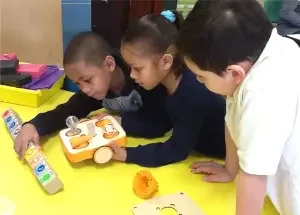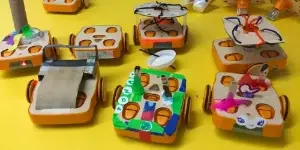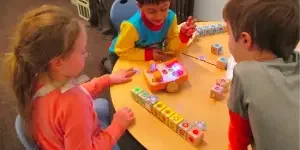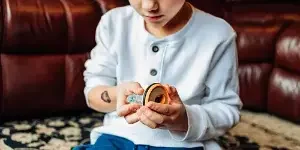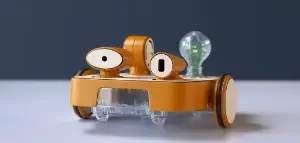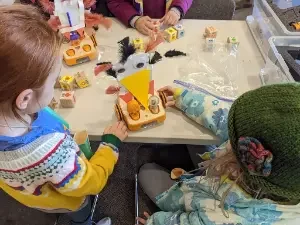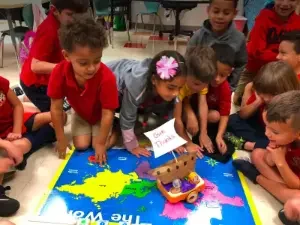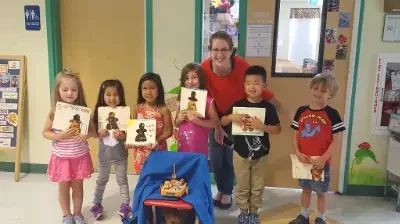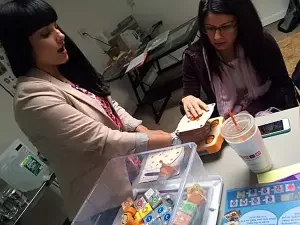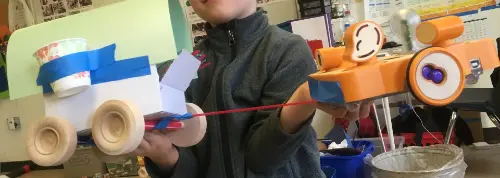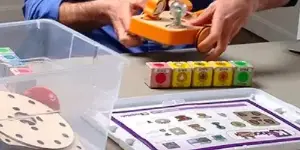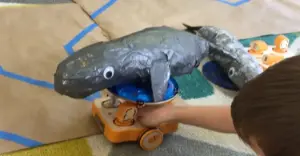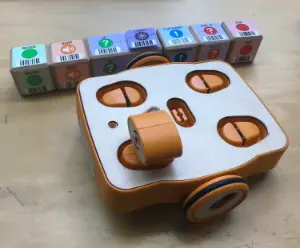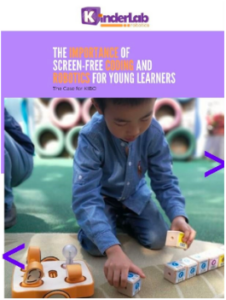KinderLab Robotics Awarded SBIR Phase 1 Grant to Develop a Robotic Kit that Promotes Programming Skills for Early Childhood Education
Educational toy is based on over 12 years of research and testing at Tufts University
Arlington, Mass. – January 12, 2014 – KinderLab Robotics, Inc. (www.kinderlabrobotics.com), a developer of educational toys for early childhood, has received a Phase 1 Small Business Innovation Research (SBIR) grant from the National Science Foundation (NSF). The six month grant will fund product design, research into manufacturing options for large-scale distribution, and market testing of a unique robot kit. The educational toy promotes Science, Technology, Engineering, and Math (STEM) skills in a unique manner that integrates with literacy, arts, creative expression, and open-ended play for children between 4-7 years old.
KinderLab Robotics is based on over 12 years of research by teams led by Marina Umaschi Bers, professor at the Eliot-Pearson Department of Child Development and adjunct professor in the Computer Science Department at Tufts University. Professor Bers’ research explores how to design innovative technologies and pedagogical approaches that are developmentally appropriate for young children. This SBIR grant builds on previous NSF-funded work by Professor Bers. Her previous research explored an early prototype robot toy that can be controlled with a tangible programming language that is uniquely well-suited to the cognitive, social, emotional, and motor developmental needs of pre-kindergarten thru second-grade students.
“The twenty-first century has already shown us that facility with computational and engineering concepts will be essential to children learning to function in the economy, and even in the broader cultural environment,” said Marina Umaschi Bers, co-founder and chief scientist at KinderLab Robotics. “Research has shown that with the right educational tools, even very young children can learn these foundational ways of thinking—and have fun doing it. This grant will help KinderLab make these critical educational tools broadly available.”
Children are encountering technology earlier in their lives and with increasing frequency, yet typical school curricula and developmental toys at home do not yet help them learn how technology actually works. Not only is it important for children to understand how cameras, cellphones, tablets, and computers can be used—it is also critical that they learn how to participate in the creation of such devices, and the invention of future machines.
“With so much riding on STEM education, we are very excited that the federal government is investing in innovative education approaches for young children,” said Mitch Rosenberg, co-founder and CEO of KinderLab Robotics. “KinderLab looks forward to rolling out a product that not only teaches kids key elements of technical literacy, but integrates tightly with a multidisciplinary curriculum, including language, math and science, cultural studies, and artistic self-expression.”
About KinderLab Robotics
KinderLab Robotics creates toys and educational tools that enable young children to learn critical technical, problem solving, and cognitive skills in a developmentally appropriate and playful way. While other STEM education products exist for middle and high school students, KinderLab uniquely fills a need for a critical population: children under the age of seven. KinderLab products are based on over a dozen years of academic and field research into how young children learn foundational concepts in programming and engineering by integrating them into a multidisciplinary curriculum that includes literacy, the expressive arts, and cultural studies. For more information about KinderLab Robotics and its educational products, please visit www.kinderlabrobotics.com.

